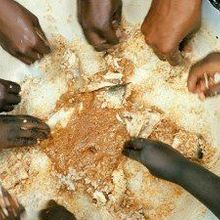Login
Subscribe404
Not Found
Is this what you were looking for?
tag hygiene hypothesis genetics genomics neuroscience

Early-Life Stress Exerts Long-Lasting Effects Via Epigenome
Asher Jones | Mar 18, 2021 | 5 min read
In mice, epigenetic marks made on histones during infancy influence depression-like behavior during adulthood. A drug that reverses the genomic tags appears to undo the damage.

Defying Dogma: Decentralized Translation in Neurons
Danielle Gerhard, PhD | Sep 8, 2023 | 10+ min read
To understand how memories are formed and maintained, neuroscientists travel far beyond the cell body in search of answers.

The Genetics of Society
Claire Asher and Seirian Sumner | Jan 1, 2015 | 10 min read
Researchers aim to unravel the molecular mechanisms by which a single genotype gives rise to diverse castes in eusocial organisms.
Scientists Strike a Cord
Rabiya Tuma | Feb 9, 2003 | 6 min read
Courtesy of SR Eng BABY STAINS: The head of a transgenic murine embryo in which a marker enzyme has been specifically expressed in the sensory neurons of the trigeminal and dorsal root ganglia. The marker allows staining of the projections of these neurons into, among other areas, the hindbrain and spinal cord. (S.R. Eng et al., "Defects in sensory axon growth precede neuronal death in Brn3a-deficient mice," J Neurosci, 21:541-9, 2001.) Somewhere in the 200 million bases of the human ge

Epigenetic Effects of Mom’s Diet
Emily Willingham | Apr 29, 2014 | 3 min read
Molecular markers of a mother’s nutrition around the time of conception can be found in her child’s DNA.

Those We Lost in 2018
Ashley Yeager | Dec 26, 2018 | 10+ min read
The scientific community said goodbye to a number of leading researchers this year.

Who Sleeps?
The Scientist and Jerome Siegel | Mar 1, 2016 | 10+ min read
Once believed to be unique to birds and mammals, sleep is found across the metazoan kingdom. Some animals, it seems, can’t live without it, though no one knows exactly why.
A Paradigm Shift in Stem Cell Research?
Ricki Lewis | Mar 5, 2000 | 9 min read
Photo: E.D. Laywell, UT MemphisMultipotent clones of cells derived from the adult human brain With the promises and challenges of stem cell research in the headlines, visions of artificial livers dance in the public's eye. Bioethicists, politicians, and citizens alike continue to debate whether public funds should be used to obtain cells from human embryos and fetuses. On the scientific front, however, the implications of stem cell research are even more profound than offering replacement parts.
Ten Technologies in Five Years
Sam Jaffe(sjaffe@the-scientist.com) | Dec 5, 2004 | 8 min read
When scientists make long-term research plans, they must try to anticipate how emerging technologies will influence their work in the coming years.
Citation Analysis Identifies 1994's Most-Cited Authors, Hottest Topics
The Scientist Staff | May 28, 1995 | 8 min read
Editor's Note: Since 1993, the newsletter Science Watch has ranked the year's most cited scientists and research papers. Based on records compiled by the Philadelphia-based Institute for Scientific Information (ISI), analysts prepared such rosters for 1994. Researchers are ranked by their number of "hot papers." An article is considered "hot" if it has garnered a substantially greater number of citations, within a two-year period, than other papers in similar disciplines. For instance, the 199